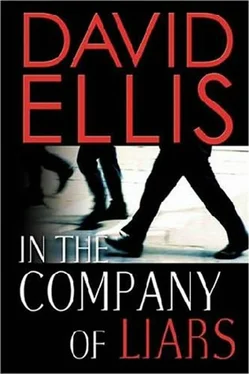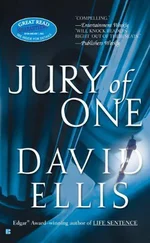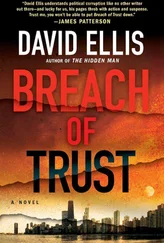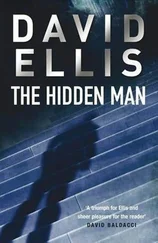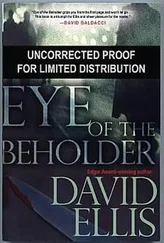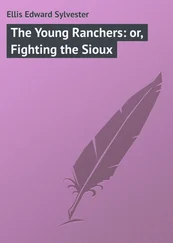McCoy understands the nerves in Shiels’s voice. Theshura majlis is the four-person consultative council that advises the Liberation Front’s leader on matters of religion, finance, war operations, and the like. Muhsin al-Bakhari is the head of the council, making him the CEO, so to speak, of the Liberation Front. Haroon is communicating directly with al-Bakhari, meaning the mission is one that the Libbies are taking seriously.
The Liberation Front does not like layers of bureaucracy. It is not a small, tightly wound group with a firm organizational structure. Rather, it is a series of loosely banded clusters throughout the world, many of them lying dormant while they await their instructions. Most disturbingly, the Liberation Front has focused recruitment on youth-rebellious, impressionable, idealistic children and young adults-both because they are the future of any rebellion and because they escape detection more easily. College kids protesting on campuses will not draw as much attention, because they have always protested. The best estimates are that the average age of suicide bombers and perpetrators of violence is twenty-one. The Libbies’ strategy, as far as the U.S. government can tell, is to recruit and indoctrinate these young people and then leave them to their own devices until the time comes. Then, in quick succession, they are given their instructions and execute the plan. The less time between formulation and execution, the less chance for mistakes or second thoughts.
For something like what the Liberation Front has in mind here, the fewer people in the loop, the better. At this point, before they even have the formula, the general thinking is that only a handful of people in the Liberation Front even know what is happening. That, McCoy assumes, is why Haroon signed his name over the seal on the envelope. It is not so much that they fear the U.S. government reading the letter; they don’t want whoever will receive this letter and deliver it to al-Bakhari to read it.
“Sir,” McCoy asks, “how is this going to play out?”
Shiels’s lips sink into his mouth, his eyes narrow. “We don’t need to know,” he says, smiling at her as if they have a mutual complaint. Beyond the scope of the local FBI office’s job, he means. “My guess? If he’s really delivering this to al-Bakhari, they’ll follow him there. And all bets are off. It’ll be Rangers, I assume. They’ll ambush the lot of them and hope to get al-Bakhari alive.”
“Sure.” If their surveillance of Ram Haroon leads them to Muhsin al-Bakhari, the U.S. government-Army Rangers, Shiels is predicting-will proceed with full force. The United States has been searching for al-Bakhari for years. It wouldn’t be a place for bystanders. “And what if he doesn’t deliver to al-Bakhari?” she asks.
“Then, we may not catch the big fishes. Haroon will perform his faithful service and the Libbies will probably kill him.”
“They’ll kill him?”
“He’s of no use to them, Agent. Not for intel, at least. He’s been to the States. He’s documented. Maybe not with his real name, but nevertheless.” Shiels gets out of his chair. “However this turns out, Ram Haroon’s days as an undercover operative for the Liberation Front are almost over. And I’m sure he knows that.”
ONE DAY EARLIER
WEDNESDAY, APRIL 14
He recalls when life was simpler, or at least when it seemed simpler. Certainly that was all it was, a mere illusion, the innocence of childhood. He prefers to think of his earliest memories, before the move to Peshawar. His family was happy. More accurately, he remembers being happy and either made the assumption that his parents were, too, or was too engulfed in the self-centeredness of early childhood to know one way or the other.
That is one thing that bothers Ram Haroon about his mother. He doesn’t know if she was happy. Father said she was. Father said she was beautiful and intelligent and forceful and loving.
Ram believes that. But after almost twenty years, he remembers little of his mother and his sister. Memories fade and are replaced with some combination of reality and fantasy. Probably his mother has grown more beautiful, his little sister more adorable, with time.
And his memories, such as they are, are grounded far less in the visual and more in the senses of smell and touch and hearing. He can remember the basics-clothes his mother and sister wore, the color of their hair-but he cannot recall the intricacies of their faces purely from memory; he can place them, but what he is remembering, he realizes with pain, are the few photographs that remain of them.
He remembers the sand near their home, where Mother would make thebunda pala-stuffed fish that she would bury for hours in the hot sand to let it bake. He remembers the succulent aroma of thesajii, the spiced leg of lamb impaled on a branch and cooked near, not over, an open fire, and licking his fingers with delight when the meal was over. He remembers his mother’s voice, her confidence and the change in inflection when she addressed her dear son.
Zulfi, she called him.
He remembers her English as well, the language spoken only by Pakistan’s elite, from which Mother came. She taught poetry and English at the university in Quetta, in the Baluchistan province. He remembers her English as much as Urdu, the language the government was trying to push as the only official language, the language Ram’s father spoke almost exclusively. Ram’s father, Ghulam, tried to converse with his wife in English but could rarely keep up; Mother often referred laughingly to his attempts as “Urdlish.”
He remembers that Mother read. He remembers that she debated with Father, not in intemperate tones, about politics and society. “You have one parent who is brilliant and one who is clearly the inferior,” Ram’s father would say, as Mother smiled. Neither would confirm which was which. Ram-Zulfi-would direct his finger from one to the other intermittently and guess, leaving them laughing uproariously.
He remembers when his sister, Benazir, was born, the earliest memory he has. He cannot recall specifics except for his mother’s singingsepadwhen Beni was born, the neighbors coming to the house and singing poems late into the evening. He remembers holding Beni in his arms awkwardly, her tiny, splotchy, contorted face, under the watchful eyes of his parents.
He remembers the day, four years later, when his mother and Beni did not come home. He remembers playing with other children in the streets, returning home expecting to find his mother and baby sister, instead seeing only his father sitting on a carpet, his hands over his face. He recalls the paralysis he felt, never having seen his father as vulnerable, not making a sound until his father finally became aware of him.
“Sit down here, Zulfi,” Father said, extending his arms, revealing a face wracked with pain, wet with tears.
Ram Haroon brings a hand to his face and sighs. It is painful but helpful to remember his mother and Beni. That’s what his father did, he said, and so will Ram. He will do this for them.
Ram takes a final look at the letter, handwritten in Arabic.
My dearest Mushi:
Much progress has been made. Anticipated date is middle of May. Arriving in Paris on June 1. Will deliver in person.
I am honored to have been chosen.
Ram folds the letter carefully and places it in an envelope. He licks the flap, seals the envelope, signs his name over the seal with the ornate pen his mother once used to write her poetry. He takes a bus to the post office about a mile from the university campus.
The wait in line is excruciating. Not the time that it takes; a Pakistani is accustomed to longer lines than this for such things. He simply wants this out of his hands. He removes his notepad and checks the address against the one he has written on the envelope, checking and rechecking. He realizes he is being ridiculous-he has been educated at the finest universities and now he is worried that he has not accurately copied a single address in Tashkent, Uzbekistan onto an envelope.
Читать дальше
